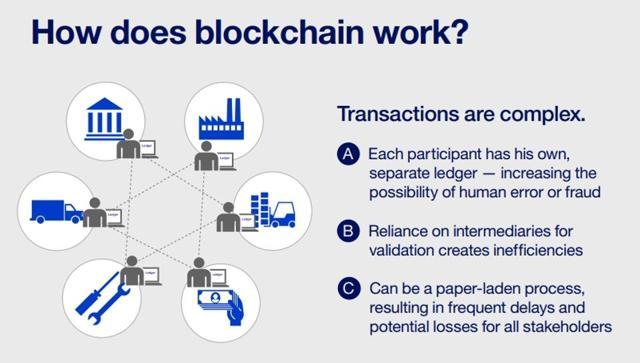Blockchain Revolution: Unleashing the Potential of Decentralization

The advent of blockchain technology has ushered in a paradigm shift in various industries, revolutionizing the way we store, transfer, and verify data. This distributed ledger technology has garnered immense attention due to its inherent features that promote transparency, security, and immutability.

What is Blockchain?

A blockchain is a decentralized, distributed database or ledger that stores data in blocks composed of transactions, which are then linked together in a chronological order. Each block contains not only the data but also a hash of the previous block, creating a secure and tamper-proof chain. This structure ensures the integrity and authenticity of the data stored on the blockchain.
Key Features of Blockchain:
- Decentralization: Unlike traditional databases, blockchain does not rely on a central authority or intermediary to manage data. Instead, it is distributed among a network of nodes, each maintaining a complete copy of the ledger.
- Transparency: All transactions and data stored on the blockchain are visible to all participants, promoting transparency and accountability.
- Immutability: Once data is added to the blockchain, it is virtually impossible to alter or remove it, providing a secure and reliable source of transaction records.
- Security: The decentralized nature of blockchain makes it highly resistant to cyberattacks and data manipulation as any changes must be verified and approved by the majority of nodes on the network.
Applications of Blockchain:
The versatility of blockchain technology allows it to find applications in various domains, including finance, supply chain management, healthcare, and digital identity:
- Cryptocurrency and Transactions: Bitcoin and other cryptocurrencies are built on blockchain technology, enabling secure and transparent peer-to-peer transactions without the need for intermediaries.
- Supply Chain Optimization: Blockchain can track the movement and authenticity of goods throughout the supply chain, reducing inefficiencies and enhancing transparency for all stakeholders.
- Medical Record Management: The use of blockchain in healthcare can secure and streamline medical recordkeeping, ensuring data integrity and facilitating collaboration among healthcare providers.
- Digital Identity: Blockchain technology can create secure and tamper-proof digital identities, reducing the risk of fraud and simplifying the verification process for various online activities.
The Future of Blockchain:
As blockchain technology continues to evolve, we can expect further advancements and innovations that will transform industries and create new opportunities. Potential areas for future developments include:
- Cross-chain Interoperability: The development of solutions that allow different blockchain platforms to communicate and exchange data seamlessly.
- Scalability and Efficiency: Improvements in transaction processing speeds and confirmation times to accommodate growing demand for blockchain applications.
- Privacy Enhancements: Exploring techniques to enhance privacy and data protection while maintaining the transparency and accountability of blockchain.
The blockchain revolution has the potential to reshape the way we interact with data, transactions, and digital identities. Its inherent characteristics of decentralization, transparency, and immutability are driving innovation and unlocking possibilities across diverse industries. As the technology matures, we can anticipate even more transformative applications that will continue to shape the digital landscape in the years to come.
